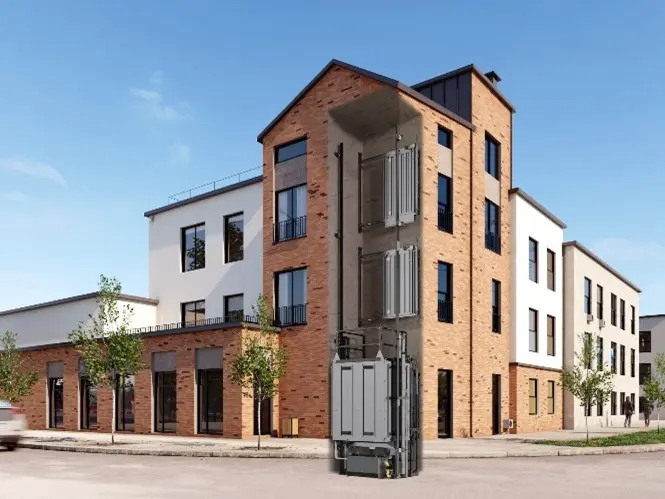Hydraulics are here to stay
TK Elevator places a strong emphasis on technology and innovation, constantly striving to push the boundaries in elevator design, functionality, and safety. We invest significantly in research and development, aiming to integrate the latest advancements into their products.
While newer technologies like electric traction systems rise in popularity, hydraulics continue to evolve. Efforts to make hydraulic systems more energy-efficient and environmentally sustainable using recycled fluids for propulsion ensure their relevance in a world increasingly focused on eco-friendly solutions.
Beyond the world of elevators, hydraulics, continue to play an indispensable role in various industries, notably in automobiles, airplanes and construction equipment. Their enduring significance stems from their unique advantages, making them the preferred choice despite the advent of newer technologies.

1. Efficiency and Power
Hydraulic systems harness the force of liquid to generate power and movement. The fundamental principle of Pascal's law—pressure exerted anywhere in a confined fluid transmits equally in all directions—forms the backbone of hydraulic machinery. This principle empowers them to provide significant force multiplication with minimal input.
In construction, heavy machinery like excavators, cranes, and bulldozers rely on hydraulics for their unparalleled strength. The controlled application of hydraulic power allows these machines to handle massive loads with precision and efficiency, enhancing productivity on construction sites.
2. Versatility and Control
The adaptability and precise control offered by hydraulic systems are unmatched. In elevators, for instance, hydraulics enable smooth, consistent movement. They provide the fine-tuning necessary for the elevator's gentle ascent and descent, ensuring a safe and comfortable ride for passengers.
Similarly, in construction equipment, hydraulics offer operators the ability to control the speed, direction, and force of the machinery. This level of control enhances safety measures and allows for intricate movements in tight spaces, critical for many construction projects.
3. Reliability and Durability
One of the key reasons for the continued use of hydraulics is their reliability and durability. These systems are designed to withstand heavy loads and high pressures, making them ideal for demanding applications. With proper maintenance, hydraulic systems can have a long lifespan, proving cost-effective for industries that rely on heavy machinery.
In the case of elevators, hydraulic systems can require less maintenance in some scenarios compared to their counterparts, making them a reliable choice for low and mid-rise buildings where cost constraints are paramount.
4. Size and Simplicity
The compact nature of hydraulic systems is another advantage. Unlike some alternative technologies, hydraulics can be more easily integrated into existing machinery without drastically altering its design. This makes them a practical choice for retrofitting or upgrading older equipment, saving both time and resources.
For elevators, hydraulic systems take up less space compared to traction systems, making them a preferred choice for buildings with limited shaft space or where structural modifications might be challenging.
The Future of Hydraulics
EOX-H from TK Elevator builds upon a legacy of engineering excellence with style and performance. The enduring value of hydraulics in elevators lies in their efficiency, control, reliability, and adaptability.
From towering construction sites to seamless elevator rides, hydraulics remain a testament to the enduring power of an age-old technology, proving that sometimes, the simplest solutions are the most enduring.
 United States
United States

